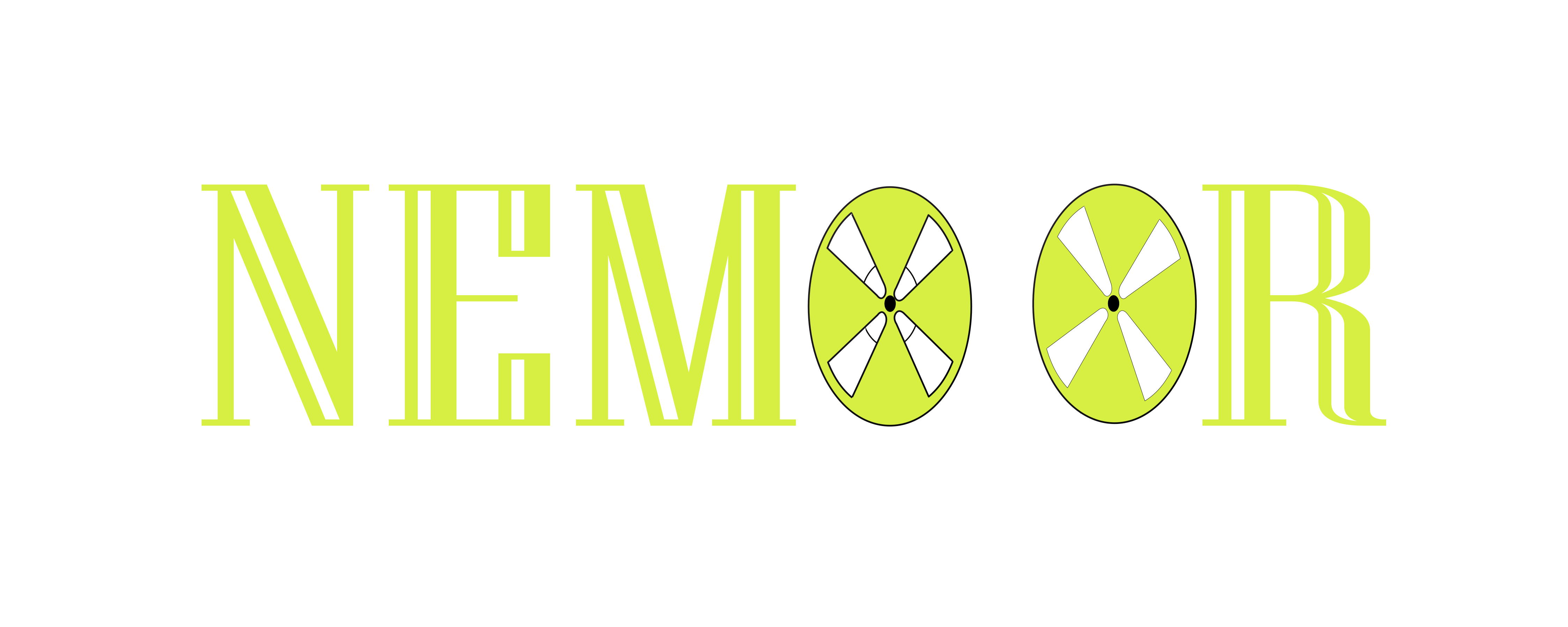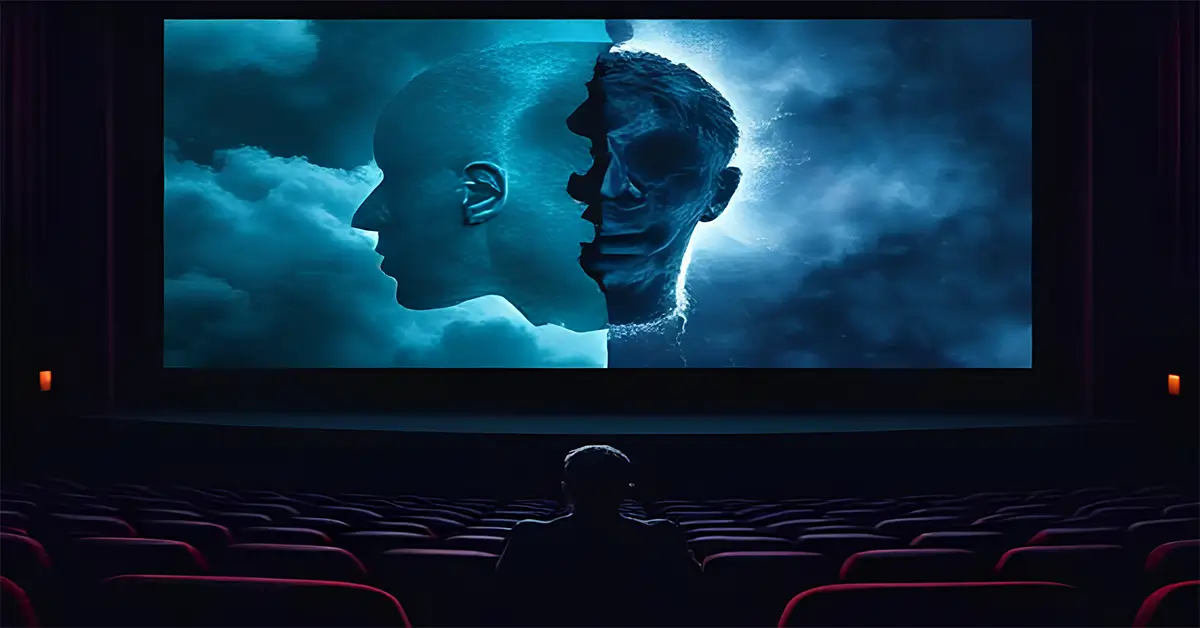The Ultimate Guide to Films About Mental Health: A Comprehensive Overview
The Ultimate Guide to Films About Mental Health , In recent years, films about mental health have become increasingly prevalent, sparking important conversations about conditions that affect millions worldwide. From award-winning dramas to thought-provoking documentaries, cinema offers a unique window into the complexities of mental illness, helping to reduce stigma and increase understanding. But why exactly do these films matter, and which ones truly get it right?
This comprehensive guide explores the intersection of cinema and mental health, offering insights into how films shape our perceptions, which movies accurately depict various mental health conditions, and how to approach these sometimes challenging narratives with mindfulness and care.
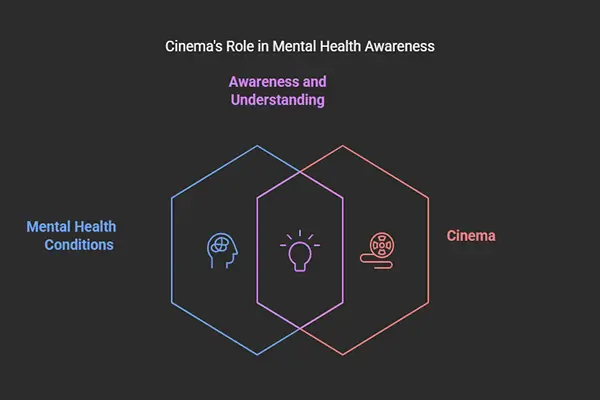
1. Why Films About Mental Health Matter
Shaping Public Perception and Awareness
Films about mental health wield tremendous power in shaping how society views and understands psychological conditions. When done well, they humanize experiences that might otherwise remain abstract or misunderstood by those who haven’t lived with mental illness. A single well-crafted film can accomplish what years of public health campaigns sometimes cannot: creating empathy and understanding through storytelling.
According to the National Alliance on Mental Illness, approximately 1 in 5 Americans experiences mental illness each year. Despite this prevalence, misconceptions persist and media representation plays a crucial role in either perpetuating or dispelling these myths.
The Impact of Positive vs. Negative Portrayals
Not all mental health representation in films is created equal. Harmful stereotypes like equating mental illness with violence or portraying characters as one-dimensional caricatures can reinforce stigma and discourage people from seeking help.
Conversely, nuanced portrayals that show characters as complex individuals who happen to have mental health challenges can profoundly shift cultural attitudes. Films that depict recovery journeys, the reality of treatment, and the full humanity of people with mental illness serve as powerful tools for social change.
Films That Raised Awareness
Several landmark films have significantly altered public discourse around specific conditions:
- “Silver Linings Playbook” (2012) brought bipolar disorder into mainstream conversation, presenting it within the context of family dynamics and relationships.
- “Still Alice” (2014) increased awareness of early-onset Alzheimer’s disease, highlighting both cognitive and emotional aspects of the condition.
- “Inside Out” (2015), while not explicitly about mental illness, revolutionized how we talk to children about emotions and psychological well-being.
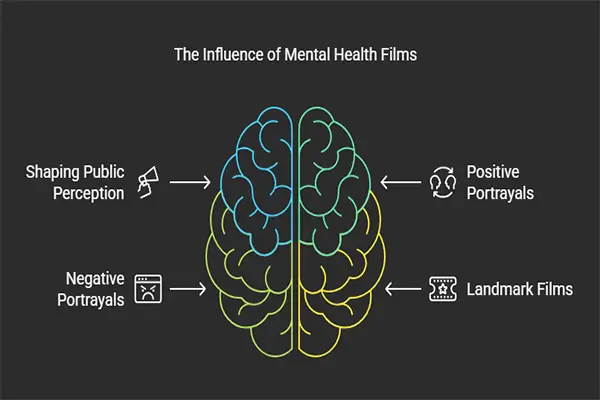
2. Common Mental Health Themes in Films
Depression & Anxiety
Depression and anxiety are among the most commonly portrayed mental health conditions in cinema. Films like “The Perks of Being a Wallflower” and “Eternal Sunshine of the Spotless Mind” capture the isolating nature of depression, while “The King’s Speech” offers a historical perspective on anxiety.
“Depression is not just sadness. It’s emptiness. It’s nothingness.” – “It’s Kind of a Funny Story”
Recent portrayals have become increasingly sophisticated, moving beyond simply showing symptoms to exploring how these conditions affect relationships, work performance, and one’s sense of identity.
Schizophrenia & Psychotic Disorders
Perhaps no mental health conditions have been more sensationalized in film than schizophrenia and psychotic disorders. While many movies have exploited these conditions for dramatic effect, others have sought to portray them with accuracy and compassion.
“A Beautiful Mind” follows mathematician John Nash’s struggle with schizophrenia, illustrating both his brilliant mind and his experiences with delusions. More recently, “Words on Bathroom Walls” offers a teen perspective on schizophrenia, complete with visual representations of hallucinations that help viewers understand the subjective experience.
Bipolar Disorder
Bipolar disorder, characterized by dramatic shifts in mood and energy levels, presents unique storytelling opportunities that cinema has increasingly embraced. “Silver Linings Playbook“ depicts the condition within a romantic comedy framework, while “Infinitely Polar Bear” examines how bipolar disorder affects parenting and family life.
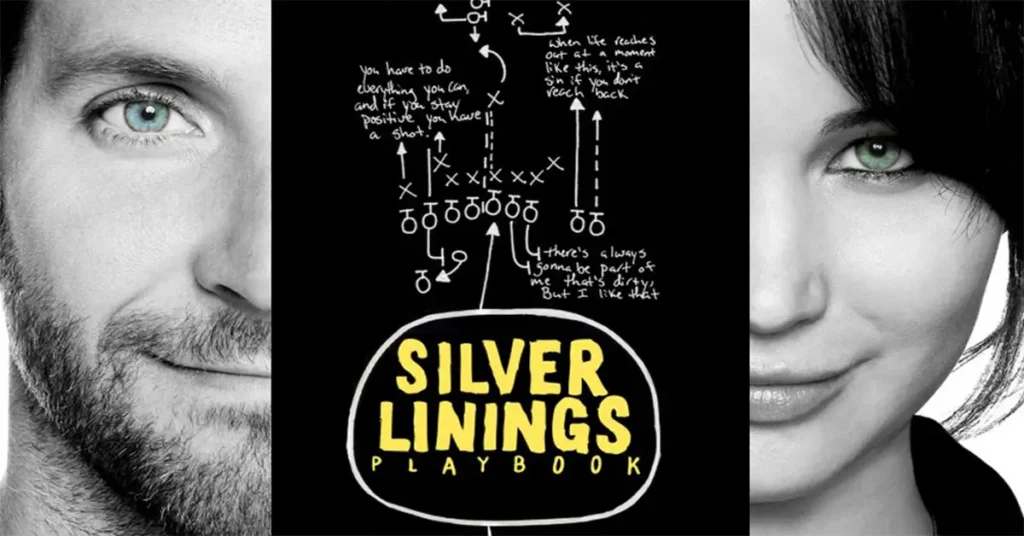
Films addressing bipolar disorder often highlight both the creative energy that can accompany manic episodes and the devastating lows of depression, presenting a more complete picture than earlier, more one-dimensional portrayals.
OCD & PTSD
Obsessive-Compulsive Disorder (OCD) and Post-Traumatic Stress Disorder (PTSD) feature prominently in contemporary cinema, reflecting growing public awareness of these conditions.
“The Aviator” portrays Howard Hughes’ struggles with severe OCD, while “As Good As It Gets” takes a more comedic approach while still honoring the challenges of the condition. For PTSD, “The Deer Hunter” offered an early examination of combat trauma, while more recent films like “Thank You for Your Service” explore the complex realities of returning veterans.
Eating Disorders
Films about eating disorders require particular sensitivity, as they must avoid either glamorizing dangerous behaviors or reducing characters to their illness. “To the Bone” attempts to navigate this difficult terrain by showing the protagonist’s journey through treatment, while documentaries like “Thin” offer unvarnished looks at the recovery process.
Addiction & Substance Abuse
Addiction narratives in film have evolved significantly, moving from morality tales to more nuanced explorations of the neurological and psychological aspects of substance use disorders. “Requiem for a Dream” provides a harrowing look at different forms of addiction, while “Beautiful Boy” explores addiction’s impact on families through the relationship between a father and his struggling son.
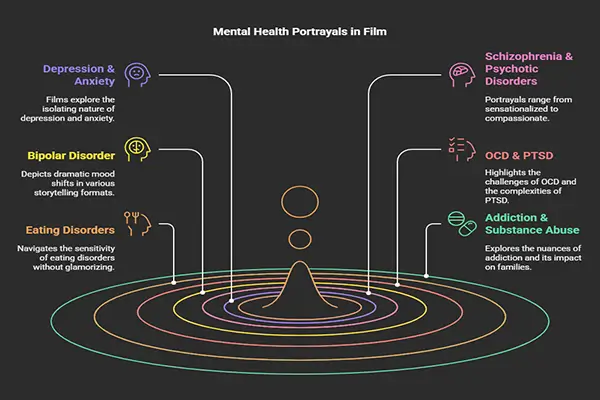
3. Trigger Warnings & Ethical Viewing
The Importance of Trigger Warnings
Trigger warnings serve a crucial purpose when discussing films about mental health: they allow viewers to make informed decisions about content that might negatively affect their own mental wellbeing. For someone in recovery from an eating disorder, for instance, graphic depictions of restrictive behaviors might trigger a relapse.
These warnings aren’t about censorship or coddling; they’re about responsible content consumption and self-care. Just as we warn about physical allergens, psychological triggers deserve similar respect.
Common Triggers in Mental Health Films
| Trigger | Examples of Films |
|---|---|
| Suicide/Self-harm | “The Virgin Suicides,” “13 Reasons Why” |
| Sexual assault | “Girl, Interrupted,” “Mysterious Skin” |
| Graphic violence | “Joker,” “American Psycho” |
| Eating disorder behaviors | “To the Bone,” “Black Swan” |
| Substance abuse | “Trainspotting,” “Requiem for a Dream” |
| Child abuse/trauma | “The Perks of Being a Wallflower,” “Precious” |
Tips for Mindful Viewing
When approaching films about mental health:
- Research before watching: Read content warnings and synopses to prepare yourself.
- Practice self-care: Watch with supportive friends or have comfort activities planned afterward.
- Take breaks when needed: It’s okay to pause or stop watching if content becomes overwhelming.
- Process your reactions: Journal about your thoughts and feelings after viewing challenging content.
- Seek support: If a film triggers difficult emotions, reach out to a trusted person or professional.
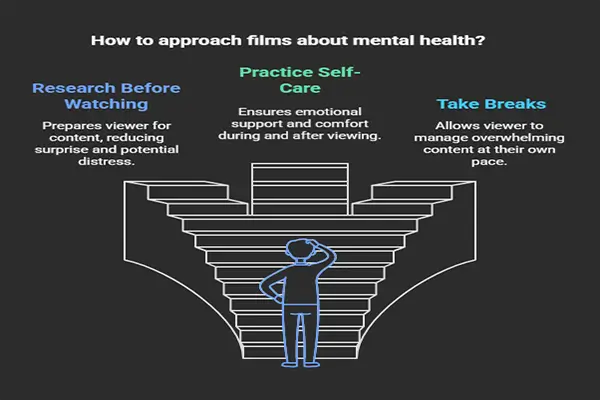
4. Best Films About Mental Health (Curated List)
Critically Acclaimed Films
- “A Beautiful Mind” (2001) – Schizophrenia
- “Girl, Interrupted” (1999) – Borderline Personality Disorder
- “Silver Linings Playbook” (2012) – Bipolar Disorder
- “The Hours” (2002) – Depression
- “Black Swan” (2010) – Psychosis, Eating Disorders
Documentaries
- “The Devil and Daniel Johnston” (2005) – Bipolar Disorder and Creativity
- “Of Two Minds” (2012) – Living with Bipolar Disorder
- “Cracked Up” (2018) – Childhood Trauma and Recovery
- “Stutz” (2022) – Therapeutic Process and Mental Health
- “Demi Lovato: Dancing with the Devil” (2021) – Addiction and Recovery
Underrated Gems
- “It’s Kind of a Funny Story” (2010) – Teen Depression
- “Cake” (2014) – Chronic Pain and Depression
- “Melancholia” (2011) – Depression as Metaphor
- “Mary and Max” (2009) – Autism, Depression
- “The Skeleton Twins” (2014) – Suicide, Family Dynamics
International Films
- “Persepolis” (2007) – Depression, Cultural Identity (France/Iran)
- “I Killed My Mother” (2009) – Coming-of-Age, Family Conflict (Canada)
- “A Man Called Ove” (2015) – Grief, Suicidal Thoughts (Sweden)
- “Shoplifters” (2018) – Family Trauma, Resilience (Japan)
- “Pain and Glory” (2019) – Addiction, Creative Process (Spain)
Recent Films
- “Joker” (2019) – Mental Illness and Society
- “The Whale” (2022) – Depression, Eating Disorders
- “Aftersun” (2022) – Depression, Parent-Child Relationships
- “Women Talking” (2022) – Trauma, Collective Healing
- “Everything Everywhere All at Once” (2022) – Anxiety, Family Relationships
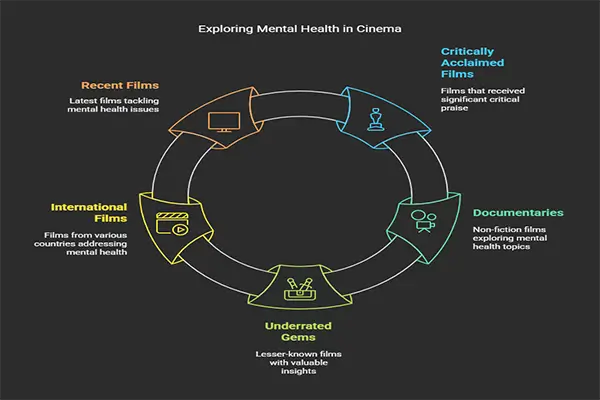
5. Resources & Support for Mental Health
Professional Mental Health Organizations
- National Alliance on Mental Illness (NAMI): Offers education, support groups, and advocacy: nami.org
- Mental Health America: Provides screening tools and community resources: mhanational.org
- American Psychological Association: Offers research and therapist finder tools: apa.org
- World Health Organization Mental Health: Global mental health resources: who.int/health-topics/mental-health
Crisis Support & Helplines
- 988 Suicide & Crisis Lifeline (US): Call or text 988
- Crisis Text Line: Text HOME to 741741 (US & Canada)
- International Association for Suicide Prevention: Directory of international crisis resources: iasp.info/resources/Crisis_Centres/
Online Communities and Forums
- r/MentalHealth: Supportive Reddit community for mental health discussions
- 7 Cups: Platform offering free emotional support and therapy: 7cups.com
- Mental Health Forum: Peer support community: mentalhealthforum.net
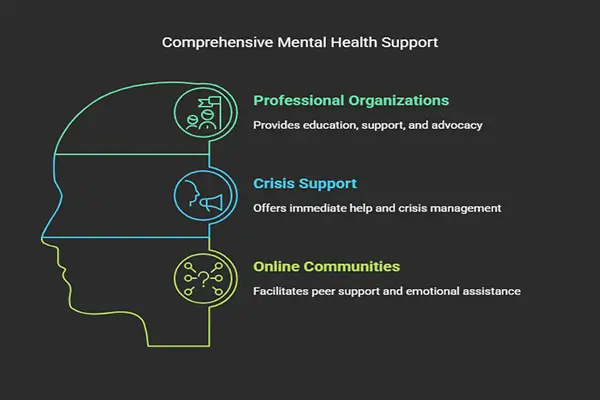
Conclusion
Films about mental health, when created with sensitivity and accuracy, serve as powerful vehicles for education, empathy, and social change. They help us understand experiences different from our own, recognize symptoms in ourselves or loved ones, and open doors to important conversations about psychological wellbeing.
As media consumers, we have the responsibility to approach these narratives thoughtfully supporting productions that present mental health with nuance and accuracy while being mindful of our own emotional responses.
Whether you’re exploring these films for personal insight, educational purposes, or simply appreciation of powerful storytelling, remember that mental health representation in films continues to evolve. The growing diversity of perspectives and conditions portrayed reflects our society’s increasingly sophisticated understanding of psychological wellbeing and its importance in our collective consciousness.
What films about mental health have resonated most with you? Share your thoughts and recommendations in the comments below, and remember conversations about mental health, whether sparked by cinema or personal experience, help break down stigma and build understanding.
Disclaimer: This article is for informational purposes only and does not constitute medical advice. If you or someone you know is struggling with mental health issues, please contact a qualified healthcare provider or crisis resource.
